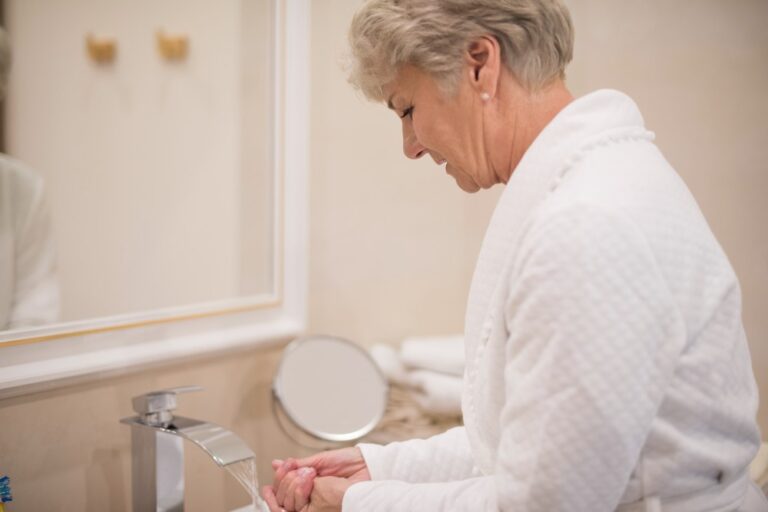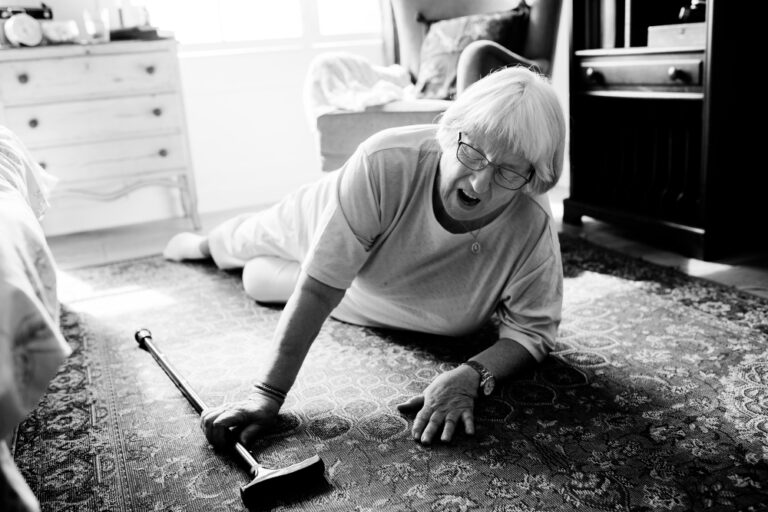Table of Contents
- Understanding the Need for Personalized Care
- Respecting Individual Dignity
- Addressing Unique Health Requirements
- Embracing Emotional Well-Being
- Promoting Independence
- Tailoring Daily Activities to Individual Preferences
- The Role of Effective Communication and Trust
- Flexibility to Adapt to Changing Needs
- Reducing Caregiver Burnout and Enhancing Caregiver Well-Being
- Enhancing Quality of Life for Seniors
- Conclusion
Caring for seniors involves more than just addressing physical needs; it requires a deep understanding of the individual’s unique life experiences, preferences, and emotional needs. As seniors age, their needs become increasingly complex and diverse, making a one-size-fits-all approach inadequate. Instead, personalized personal care plans offer a tailored approach that ensures each senior receives the care they need in a manner that respects their dignity, promotes independence, and enhances their overall quality of life.
Understanding the Need for Personalized Care
The aging process is a highly individual experience. Each senior faces a unique set of challenges that can include physical health issues, emotional struggles, social isolation, and the need for assistance with daily activities. Traditional, standardized care models often fall short of addressing these diverse needs, leading to gaps in care and a decline in the senior’s quality of life.
Personalized personal care plans are designed to fill these gaps by offering a customized approach to caregiving. These plans are developed based on a comprehensive assessment of the senior’s health, lifestyle, and personal preferences, allowing caregivers to provide targeted support that meets the senior’s specific needs. This approach is not only more effective but also more compassionate, as it recognizes and respects the individuality of each person.
Respecting Individual Dignity
Dignity is a fundamental aspect of human life, and it becomes even more important as people age. For seniors, maintaining dignity means feeling respected, valued, and independent, despite the challenges that come with aging. A personalized personal care plan plays a crucial role in preserving dignity by ensuring that care is delivered in a way that aligns with the senior’s values and preferences.
For example, some seniors may prefer to receive assistance with daily activities in a way that allows them to maintain as much independence as possible. Others may have specific preferences about how they are dressed, groomed, or fed. By tailoring care to these preferences, caregivers can help seniors feel more in control of their lives, which in turn fosters a sense of dignity and self-worth.
Moreover, a personalized care plan can help prevent situations that might otherwise cause embarrassment or discomfort for the senior. For instance, if a senior requires help with personal hygiene, a personalized approach can ensure that this assistance is provided discreetly and respectfully, preserving the senior’s dignity.
Addressing Unique Health Requirements
As seniors age, they often face a range of health challenges, including chronic conditions, mobility issues, and cognitive decline. These health issues can vary widely from one individual to another, making it essential for caregivers to adopt a personalized approach to care.
A personalized personal care plan allows caregivers to provide targeted support that addresses the senior’s specific health needs. For example, a senior with diabetes may require careful monitoring of their blood sugar levels, a specialized diet, and assistance with medication management. A personalized care plan can ensure that these needs are met consistently and effectively.
In addition, personalized care plans can be adapted to accommodate changes in the senior’s health status. As health needs evolve, the care plan can be updated to include new interventions or therapies, ensuring that the senior continues to receive the most appropriate and effective care. This flexibility is crucial in managing the complex and often unpredictable nature of aging-related health issues.
Embracing Emotional Well-Being
Emotional well-being is a critical component of overall health, particularly for seniors. As people age, they may experience a range of emotions, including loneliness, anxiety, and depression. These emotional challenges can have a significant impact on a senior’s quality of life and may even exacerbate physical health issues.
Personalized personal care plans recognize the importance of emotional well-being and include strategies to support the senior’s mental and emotional health. This might involve providing companionship, encouraging social interaction, and offering activities that bring joy and a sense of purpose.
For example, a senior who enjoys gardening might benefit from a care plan that includes time spent in the garden, either alone or with a caregiver. This activity can provide not only physical exercise but also emotional fulfillment, helping the senior feel more connected to their environment and to the people around them.
In addition, personalized care plans can address specific emotional needs that may arise due to life changes, such as the loss of a spouse or the transition to a new living environment. By providing targeted emotional support, caregivers can help seniors navigate these challenges more effectively, reducing stress and promoting a more positive outlook on life.
Promoting Independence
One of the most important goals of personalized personal care plans is to promote and preserve the senior’s independence. Maintaining a sense of independence is crucial for seniors, as it allows them to feel in control of their lives and to continue participating in activities that are meaningful to them.
A personalized care plan is designed to empower seniors by providing the right level of support, without unnecessarily limiting their ability to do things on their own. For example, a senior who is able to dress themselves with minimal assistance should be encouraged to do so, rather than having a caregiver take over the task entirely. This approach not only supports independence but also enhances the senior’s confidence and self-esteem.
In cases where a senior’s abilities are limited, a personalized care plan can include adaptive strategies that enable the senior to continue engaging in activities they enjoy. For example, if a senior loves cooking but has difficulty standing for long periods, the care plan might include modifications such as using a chair while preparing meals. By adapting activities to the senior’s abilities, caregivers can help them maintain a sense of autonomy and control over their daily lives.
Learn More: Understanding Spinal Cord Injuries
Tailoring Daily Activities to Individual Preferences
Daily activities play a significant role in a senior’s quality of life. These activities can include everything from routine tasks like bathing and dressing to leisure activities like reading, gardening, or socializing with friends. A personalized personal care plan recognizes the importance of these activities and tailors them to the senior’s individual preferences and interests.
For example, a senior who has always enjoyed reading may find comfort and joy in continuing this activity as part of their daily routine. A personalized care plan can ensure that the senior has access to their favorite books and that time is set aside each day for reading. Similarly, a senior who enjoys socializing may benefit from a care plan that includes regular visits with friends or participation in group activities.
By aligning daily activities with the senior’s preferences, personalized care plans contribute to a more fulfilling and enjoyable life. This approach not only enhances the senior’s well-being but also helps prevent feelings of boredom or isolation, which can lead to depression and other emotional challenges.
The Role of Effective Communication and Trust
Effective communication is the foundation of any successful caregiving relationship. In the context of personalized personal care plans, communication is essential for ensuring that the care provided is aligned with the senior’s needs and preferences. It also plays a crucial role in building trust between the senior, their caregivers, and their family members.
A personalized care plan involves ongoing dialogue between all parties involved in the senior’s care. This communication allows for regular updates on the senior’s health and well-being, as well as discussions about any changes that may be needed in the care plan. By involving the senior and their family in these discussions, caregivers can ensure that everyone is on the same page and that the care plan is truly reflective of the senior’s needs and desires.
Trust is a critical component of the caregiving relationship, and personalized care plans help to build and maintain this trust. When seniors feel that their caregivers understand and respect their needs, they are more likely to feel comfortable and secure in the care they receive. This trust is essential for fostering a positive and supportive caregiving environment.
Flexibility to Adapt to Changing Needs
Aging is a dynamic process, and a senior’s needs can change over time. Health conditions may improve or worsen, preferences may evolve, and new challenges may arise. A personalized personal care plan is designed to be flexible, allowing it to adapt to these changes and continue providing effective care.
For example, a senior who initially required assistance with mobility may regain some strength and independence after physical therapy. In this case, the care plan can be adjusted to reflect the senior’s improved abilities, reducing the level of assistance provided while still ensuring that the senior remains safe and supported.
Conversely, if a senior’s health declines or new health issues emerge, the care plan can be modified to include additional interventions or support services. This flexibility ensures that the care provided remains relevant and effective, regardless of how the senior’s needs change over time.
Reducing Caregiver Burnout and Enhancing Caregiver Well-Being
Caregivers play a vital role in the lives of seniors, and their well-being is essential for providing high-quality care. Personalized personal care plans not only benefit the seniors but also contribute to caregiver well-being by reducing stress and preventing burnout.
By tailoring the care plan to the senior’s unique needs, caregivers can work more efficiently and effectively. This reduces the likelihood of feeling overwhelmed or overburdened, which are common causes of caregiver burnout. Additionally, a well-structured care plan can include strategies for caregiver self-care, such as regular breaks, support from other caregivers, and access to resources that promote caregiver well-being.
When caregivers are well-supported and able to maintain their own health and well-being, they are better equipped to provide compassionate and effective care to seniors. This creates a positive feedback loop, where the well-being of both the caregiver and the senior is enhanced.
Learn More: What Is Memory Care? Services and Benefits
Enhancing Quality of Life for Seniors
The ultimate goal of personalized personal care plans is to enhance the overall quality of life for seniors. By addressing the full spectrum of a senior’s needs—physical, emotional, social, and psychological—these plans contribute to a more fulfilling and satisfying aging experience.
A personalized care plan ensures that seniors receive the right level of support at the right time, allowing them to enjoy their golden years with dignity, independence, and joy. This holistic approach to care recognizes the complexity of aging and provides a comprehensive framework for meeting the diverse needs of seniors.
Conclusion
Personalized personal care plans are essential for providing high-quality, compassionate care to seniors. By respecting individual dignity, addressing unique health requirements, promoting emotional well-being, and supporting independence, these plans ensure that seniors can enjoy their golden years with dignity, independence, and joy. The flexibility to adapt to changing needs and the emphasis on effective communication and trust make personalized care plans a vital tool in enhancing the quality of life for seniors.
At From The Heart Home Care, we understand the importance of personalized care and are committed to creating individualized care plans that meet the unique needs of each senior. Our approach ensures that every aspect of a senior’s life is considered, from physical health to emotional well-being, allowing them to age gracefully and comfortably. By placing the senior at the center of the care plan, From The Heart Home Care provides the support and compassion needed to make aging a positive and fulfilling experience.







